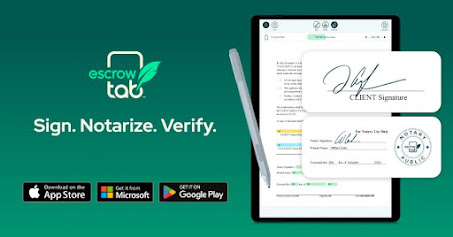IPEN - What Solution Provider is the Best for You, North Carolina Electronic Notary?
Hello Notaries of North Carolina, were you aware, electronic notarization has been available in North Carolina since 2005 under the Electronic Notary Act. At sometime between 2020 - 2022 North Carolina changed the language from electronic notary to in-person electronic notary aka IPEN to help specify more of what we do in this State when performing this type of notarization because a RON aka remote online notary also handles electronic notarization in a very different way that NC notaries does not perform as of this date. Speaking of RON, in North Carolina it is called REN, remote electronic notarization, because a notary must be an electronic commissioned notary also. This class is only 3.5 hours and can be taken at your local community college.
In notary language IPEN an adjective means in-person electronic notary. Well in this article we are speaking the same language, however, we will be covering what the noun, IPEN is.
As the demand for electronic notarization continues to grow, it's important for North Carolina notaries to stay up-to-date on the latest technology and best practices for performing e-notarizations. One tool that can help with this is IPEN, offered by EscrowTab and was recently approved as one of the electronic solution providers by the NC Secretary of State. Refer to this link for details: https://www.linkedin.com/posts/escrowtab_ipen-eclosing-digitalclosing-activity-7016047229182304256-Ftgi?utm_source=share&utm_medium=member_desktop.
IPEN, or the Internet Protocol Enabled Notary, is a secure platform that allows notaries to perform e-notarizations in compliance with North Carolina state laws and regulations. The platform is designed to make the e-notarization process as easy and efficient as possible, while also providing a high level of security and fraud prevention.
One of the key benefits of IPEN is its ability to verify the identity of the signer in real-time. The platform uses a combination of facial recognition technology and a secure document upload process to ensure that the person signing the document is who they claim to be. This helps to prevent fraud and ensure that the notarization is valid.
Another benefit of IPEN is its user-friendly interface. The platform is easy to navigate, making it simple for notaries to perform e-notarizations quickly and efficiently. Additionally, the platform is accessible from any device with internet access, so notaries can perform e-notarizations from anywhere, at any time.
In addition to the above benefits, IPEN also provides North Carolina Notaries with a tamper-proof digital certificate, that can be used as evidence in court and can be accessed at any time. This certificate is stored in a secure and decentralized storage, making it almost impossible to be lost or tampered with.
Overall, IPEN is a valuable tool for North Carolina notaries looking to perform e-notarizations in compliance with state laws and regulations. It offers a high level of security and fraud prevention, while also making the e-notarization process easy and efficient.
As a leading provider of e-notarization technology, EscrowTab is dedicated to helping notaries stay up-to-date on the latest developments in the industry. If you're a North Carolina notary looking to perform e-notarizations, we encourage you to learn more about IPEN and the other tools and resources we offer.
I've had the pleasure to be in communication with the VP of EscrowTab, Amy Moses and she's so down to earth and so willing to help those of us that are interested in learning more and ensures that their Manager of Customer Success, Brittany Wallace. For those that will be in attendance at the annual NCNA Conference on April 22nd will have the opportunity to be introduced to their company and ask questions!
To learn more about EscrowTab’s app rollout, schedule a demo with us. https://lnkd.in/ebFVVZCm




Comments
Post a Comment